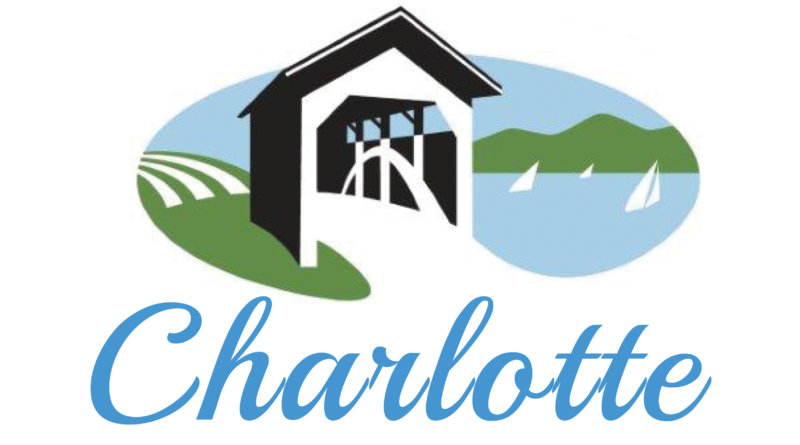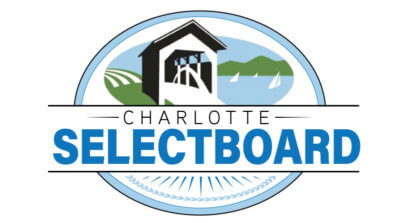Town manager debate picks up steam
An ad hoc group collecting signatures for a petition to change Charlotte’s municipal government from a town administrator to a town manager has drawn the ire of some of the selectboard.
The group held a meeting to talk about the issue at the Charlotte Senior Center on Saturday, March 25. Selectboard chair Jim Faulkner said he was invited to the meeting at the last minute that morning, which he was careful to assert was not an official town meeting.
Frank Tenney also attended, but no other selectboard members did because that would have been too many discussing town business at an unannounced meeting and a violation of open meeting law.
The meeting, which both sides of the town manager issue have described as tense and heated, ended with a compromise for the group to pause its efforts until after an official meeting with the selectboard on Monday, April 17.
 “I have no idea of whether a town manager or town administrator is better or worse, and maybe the benefits and pros and cons of each,” Faulkner said at the selectboard meeting this Monday, March 27. “The biggest issue is, I think, that we might rush a little too fast on this concept.”
“I have no idea of whether a town manager or town administrator is better or worse, and maybe the benefits and pros and cons of each,” Faulkner said at the selectboard meeting this Monday, March 27. “The biggest issue is, I think, that we might rush a little too fast on this concept.”
Not only does the selectboard need to research the advantages and disadvantages of both systems of town government, but it needs to share that information with the voters, Faulkner said.
“The town manager may be the right thing for us, but we don’t know that, do we? We don’t know how it affects our road commissioner, the town clerk, every department we have here, and the cost,” he said. “This is the worst time to think about increasing costs on anything.”
Louise McCarren applauded Faulkner for having the discussion, but criticized the way the issue was introduced by the group. “I am very unhappy with the way it has been brought forth.”
Although he is a resident of Charlotte, Lee Krohn, Shelburne town manager, said he isn’t taking sides on this issue. But, he came to the Saturday meeting because he thinks this is a good time for Charlotte to consider the change because Dean Bloch, Charlotte town administrator, is retiring at the end of October.
“When you have transitions, it’s a good time to look at things like this,” Krohn said. “The town might decide not to do it.”
If the town decides to do it, it’s important for residents and town officials to know why they want to make the switch and what is the underlying issue they are trying to solve, he said.
One thing Krohn has noticed about Charlotte is how long its selectboard agendas tend to be. In Shelburne his agendas are usually just a few inches long and on one side of a piece of paper. Charlotte’s agendas often take up multiple sheets, and meetings frequently last longer than three hours.
He believes that after a meeting has gone on longer than two hours “things go downhill fast” because people’s attention spans don’t last that long.
Krohn said, when he first became town manager in Shelburne, he got some pushback for his shorter agendas, but then selectboard members realized that just because things were more efficient didn’t mean they were shutting down debate.
After they got used to the shorter agenda, selectboard members in Shelburne told Krohn, “This is efficient, and I can get up in the morning.”
Former Charlotte Selectboard member Lane Morrison, who is at the center of the town-manager petition drive, said the selectboard is “pretty conscientious” about letting everybody who has an item on the agenda speak, so meetings go on for “hours and hours.”
“Not everything is of equal importance,” Morrison said. A town manager would have the authority to deal with lots of things, which would free up the selectboard “so they can act more like a board of directors.”
He believes that with a town manager running interference the selectboard could spend more time on issues of greater importance, like the new town garage or the transition to a town-run fire and rescue service.
Morrison said they would wait to submit their petition until after the April 17 selectboard meeting. If the petitioners decide to go forward, the first step would be to turn the document over to town clerk Mary Mead, who would check to see if the signatures were from residents who are registered voters.
After Town Meeting Day, there were 3,329 registered voters and Morrison said he has at least 200 signatures which would be just over 6 percent of Charlotte voters.
According to Vermont statute, 5 percent of voters are needed to require a town vote on adopting the town manager form of municipal government.
Related Stories
Popular Stories
If you enjoy The Charlotte News, please consider making a donation. Your gift will help us produce more stories like this. The majority of our budget comes from charitable contributions. Your gift helps sustain The Charlotte News, keeping it a free service for everyone in town. Thank you.
Andrew Zehner, Board Chair




